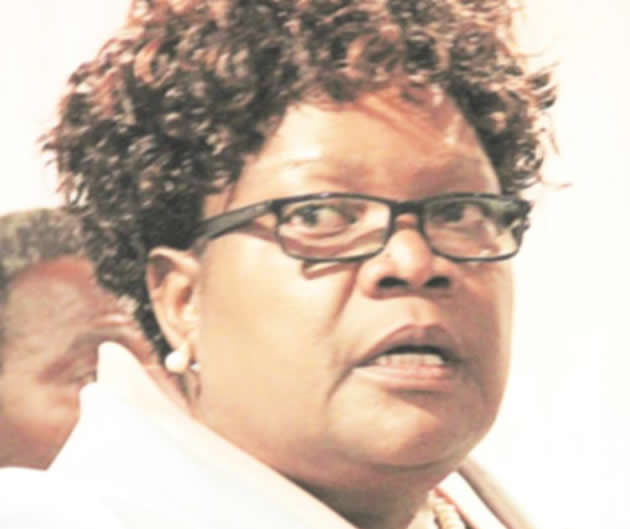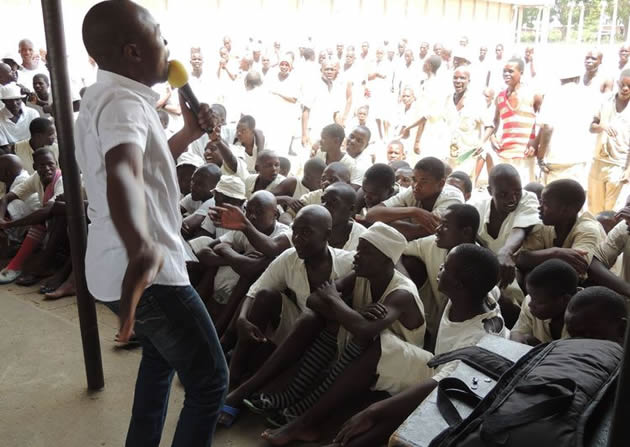Scourge of pointless political parties

Nick Mangwana View From the Diaspora
THIS week this column comes back again to the subject of personal interests in factions as well as the proliferation of self-serving political parties grounded on material and vain interests rather than pursuit of ideological endeavours.
Every roadmap that has been seen in the Zimbabwean political discourse has been a roadmap to power and not a roadmap to the attainment of socio-economic objectives for the people of Zimbabwe.
It has always been about leaders trying to gain access to public resources.
Zimbabwe has a lot of political parties which cannot be distinguished apart from the ridiculous acronyms and alphabets as well as the names of the leaders.
That is it.
That is politics of personalities. When these political parties are formed, one always wonders about the political space they are attempting to occupy really because there is already too many other parties in every current space.
Is the formation of these political parties a pursuit of developmental issues or material interests?
Is the formation of factions within mass political movements like Zanu-PF anchored upon known paradigms or just pursuit of power for the sake of power?
Zanu-PF is the party that stands out as the main if not the only ideology-based party in the political landscape, but the current internecine fights have brought into question what is actually being pursued here.
Personal or familial interests or that of the nation by some of these protagonists.
The opposition political parties are just ideologically bankrupt.
Despite this, Zimbabweans do not stop from forming more ideologically vacuous organisations.
Zimbabwe is currently dealing with politics that lack the “Big Idea”.
If one would ask any opposition political leader what their big idea is besides the “Mugabe must go” mantra will they give anything dispensational, ground-breaking political doctrine?
In between the elections can anyone explain what the programmes of these political parties are?
They are bereft of any political ideology except an unbridled preoccupation with power.
Zimbabwe has had enough of these organisations whose only agenda is power grab and changes for the sake of it as well as change because it would be fashionable to have variety.
What are they opposing?
Do they oppose the Indigenisation and Economic Empowerment?
Most of them would tell you that they do not but have a problem with the process.
Do they oppose the Land Reform Programme?
Most would tell you that they oppose the methodology and not the principle.
So they don’t oppose the Zanu-PF political positions.
What do they oppose?
The way Zanu-PF does things?
Is that reason enough to form an alternative party rather than work to do things differently?
When one comes to Zanu-PF itself besides opposition to certain individuals from certain regions of the country from running the country what are the actual fraternal differences on issues?
Or besides not brooking certain individuals getting State power, what is the basis of opposition or the basis of supporting the next individual except certain political expediency?
Politics based on purely ethno-identity or opposition to certain ethno-identities is shallow.
The people of Zimbabwe would like to hear “How” Mrs Mujuru and her “Pictures First” outfit intends to make lives better for Zimbabweans.
All they hear is a retributive and vindictive preoccupation with Zanu-PF bashing. How is this outfit going to address the marginalisation of women in society when Mrs Mujuru held so many party and Government positions particularly to address the interests of the female constituents and to this day did nothing except pursue her personal and familial interests? Even the Ministers of State in her office as Vice President were male. Most of her aides were male. In fact, the only female to benefit from her vice presidency was herself. This is the problem with politics of persons and not of political ideology.
If one reads the so-called BUILD blueprint there is very little difference between the preoccupation with the electoral democratic agenda with that of the MDC-T. But, on the other hand, there is no difference between the pursuits of the social justice agenda with that of Zanu-PF.
So besides shift from being an establishment person in the “system” and now wearing an opposition jacket what does this party really stand for? And besides that switch from establishment to opposition is there any ideological space being occupied by this outfit?
The opposition side of Zimbabwean politics is looking for stalwarts. It appears it is not looking for ideas. All people hear is about egocentric politicians and their acolytes looking for political gravitas by either roping in somebody who they consider to have some political stature or forming political parties so that they can also be invited to the feast of convergence.
A few individuals with no grassroots support at all, no structure and clearly no ideology just call for a Press conference at some upmarket Harare hotel, unfurl a banner and bingo, Zimbabwe has a new political party! What a fiasco. Some of these do not even have membership cards and yet claim to have members in the shadow. How? What defines that membership?
The only positive thing about this proliferation of political parties is that there haven’t been many parties that have directly appealed to ethnical sentiment as a stop gap to cover the gap left by the absence of ideological principles or policy.
The difference between political parties and all other social enterprise organisations is that political parties contest elections. They have a purpose and structure and that purpose is not simply to gain power. There should be political public and visible activity between elections and not just before elections. They have structures. They have constitutions, they have rules. But dozens of these we see in Zimbabwe are just a joke. They are personalised enterprises with the leader and their families being the full embodiment of the party.
But genuine political parties are mass-based organisations owned by the members who then choose leaders to lead them. They do not belong to their founders. They belong to the people. They belong to those who are entitled to vote in their processes. The preoccupation is not the acquisition and retention of power. Policy formulation should be at the heart of any political organisation and not to be obsessing with a leader of the other party.
When political parties split, it should be formed on the basis of ideological differences. Of course, there are political parties that are formed from the mother parties that are intolerant to both divergent views and dissent but still continue to have the same culture as the one that they have left.
The idea is not to curtail the development of political parties but to discourage the proliferation of pointless political parties.
Zimbabwe needs ideas and not political parties. That is not to say that multi-party democracy is not necessary. On the contrary that is very necessary because no party including the one this columnist is member of should be left alone unchecked. Otherwise the excesses therefrom would be too much for the people.
But this theory only works when the opposition’s main purposes are to represent the interests of the nation as well and not just very narrow power interests. In that case one would find the opposition undermining Government policies such as Zim-Asset regardless of the effect of their actions on the masses. As long as this will boost their quest for power it won’t matter to them who get hurt.
Parties should gain support by offering public their own programmes and surely not to just call for a rally whose main theme is “Zanu Yaora”. That is what is being referred to here as being just plainly pointless. Relevant parties should be selling their positions to the public on each and every issue of national interest.
The whole nation of Zimbabwe is not just about “democracy” there are a lot of their issues which the public needs to know the opposition’s positions even though elections are still some years away. Political action is legitimised by a set of beliefs or a system of values, objectives and political programmes which generally is what is referred to as an ideology.
It is these “Zanu Yaora” parties that never hold congresses or hold congresses with resolutions already printed. Their thinking does not follow the preferences of the members. They follow what the leader thinks and drafts and issues as a policy document without consulting the members. This is political eclecticism which falters at grassroots level because it is these parties that tell members what their needs are rather than the other way round. There are no ideals in these parties.
It is again parties like these that focus on respect of authority and respect for the leader and his family whilst ignoring issues like respect for members and their rights. It is these pointless parties that claim that slogans which say, “Pasi nanhingi or nenhingi . . .” are hate speech yet they themselves have very shockingly violent slogans which go along the lines of, “… hezvoko bwaaa”. Such implied aggression.
It is mass-based political parties that embody the aspirations of the people of Zimbabwe and not big personality based organisations which die the day their leader dies or which are never in existence until their reluctant leader has a whim to make them exist. When people hang to every flippant hint that someone might actually be interested in forming a party one should know that sometimes desperation knows no bounds.










Comments